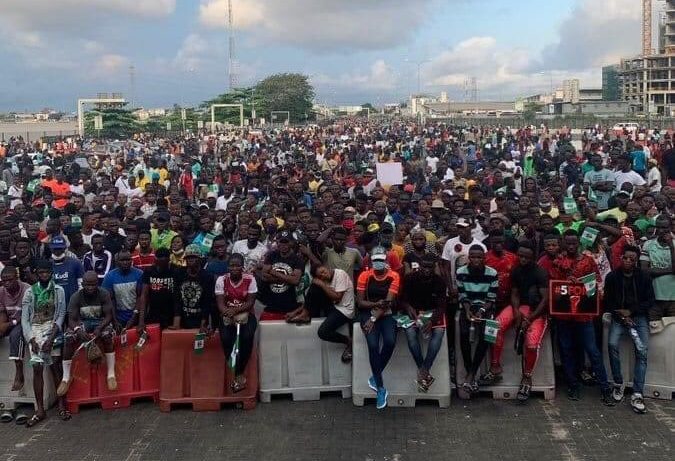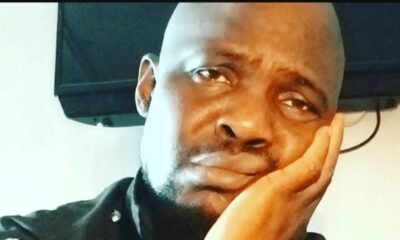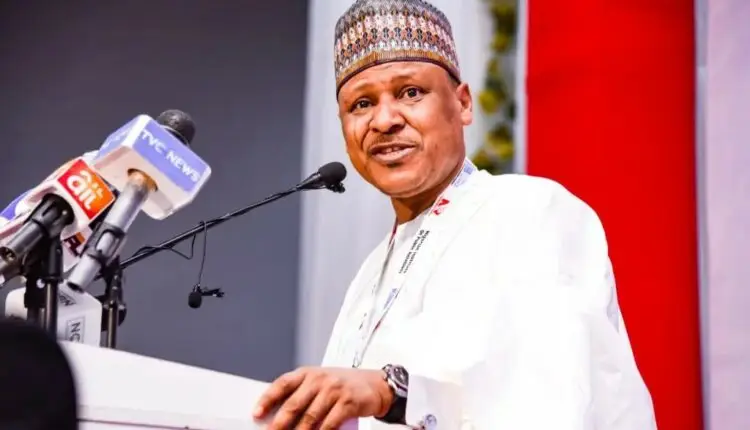The forensic and ballistic company hired by the Lagos State government to investigate the shooting incident at the Lekki tollgate has said that yet-to-be-identified persons fired live bullets at the protesters on the night of 20 October, 2020.
The UK-based company, Oxygene Consulting UK Ltd, represented by Dieye Willie-Harry, its executive director and senior consultant, gave the report of the team on Tuesday via Zoom.
“We have not viewed any footage, which definitively shows a muzzle aimed towards any individual and at the same time being fired with the effect thereof, with what we can freely assess to be firing live ammunition (no flailing or falling injured victims),” Mr Willie-Harry said.
“However, given the injuries sustained from 21:00 hrs and further, we believe, that live, military-grade ammunition, was fired at some point, by persons as yet to be identified.”
According to Mr Willie-Harry, the team was engaged by the government 10 days after the shooting incident to conduct medical, ballistic, and forensic injury analysis of the event.
He said by the time the team of experts arrived Lagos in December last year, “the medical treatment of victims had reached an advanced stage, injuries had healed and victims had been discharged from healthcare centers.
“The ability of the victims to give reliable accounts of how, when and where, their respective injuries were sustained, may have deteriorated, or been contaminated by exterior influences and the passage of time,” he said.
Mr Willie-Harry, a UK-based Nigerian, is a military operation analyst, forensic investigator, kidnap and ransom negotiator, trained paramedic, and surveillance officer.
Giving the forensic and ballistic report of the team, he said his team examined medical reports and x-rays of the victims who were treated at public and private hospitals in Lagos.
He said the medical data examined included the timeline of arrival at medical facilities and the nature of the injuries sustained by the victims brought to the facilities.
He said their investigation showed there was “no military-grade live ammunition (high-velocity) fired at the protesters, at Lekki tollgate, on 20 October, last year within the timeframe of 6:30 p.m to 8:34 p.m.” He added that the military-grade ammunition was used later, after 9 p.m.
Mr Willie-Harry said four victims of gunshots, who reported at hospitals between 7:05 p.m. and 7:45 p.m on the day of the shooting, were examined by the team.
The expert said the wounds sustained by the victims “can be safely identified as being discharged by either low-velocity calibre and/or artisanal/12 gauge firearms.
“The team is unable to ascertain, how, by whom, where and when exactly these GSW [gunshot wounds] injuries were sustained, due to the apparent breakdown of law and order, prevalent during the day, afternoon and evening of 20/10/2020, in Lagos at the time of the alleged Lekki incident,” he said.
The Nigerian army earlier told the panel that although soldiers were deployed to the Lekki tollgate axis, the soldiers fired only blank ammunition into the air to disperse the protesters.
Amidst several reports of deaths and injuries, allegedly resulting from gunshots supposedly fired by soldiers of the Nigerian Army, the Nigerian Army later said it went to Lekki toll gate with both live and blank ammunition.
Mr Willie-Harry said the team reviewed 19 ballistic-related injuries, non-law enforcement grade ammunition-related injuries, and 23 medical injuries classified as non-ballistic, non-fire arm-related injuries.
He said a total of eight injuries were “commensurate with 7.62 x 39mm (law enforcement grade ammunition), and only two were recorded on the night of October 20, last year. The remaining six were recorded between October 21 and 22, last year, according to medical reports.
Mr Willie-Harry said 11 injuries were, however, firearm injuries not commensurate with 7.62 x 39mm, non-law enforcement grade ammunition. He said the injuries are from artisanal weapons, locally-made weapons that are classified as small arms, and light weapons (SALW).

 News3 years ago
News3 years ago
 Entertainment2 years ago
Entertainment2 years ago
 News3 years ago
News3 years ago
 Privacy3 years ago
Privacy3 years ago
 Sports2 years ago
Sports2 years ago
 Entertainment2 years ago
Entertainment2 years ago
 News3 years ago
News3 years ago
 Opinion3 years ago
Opinion3 years ago





